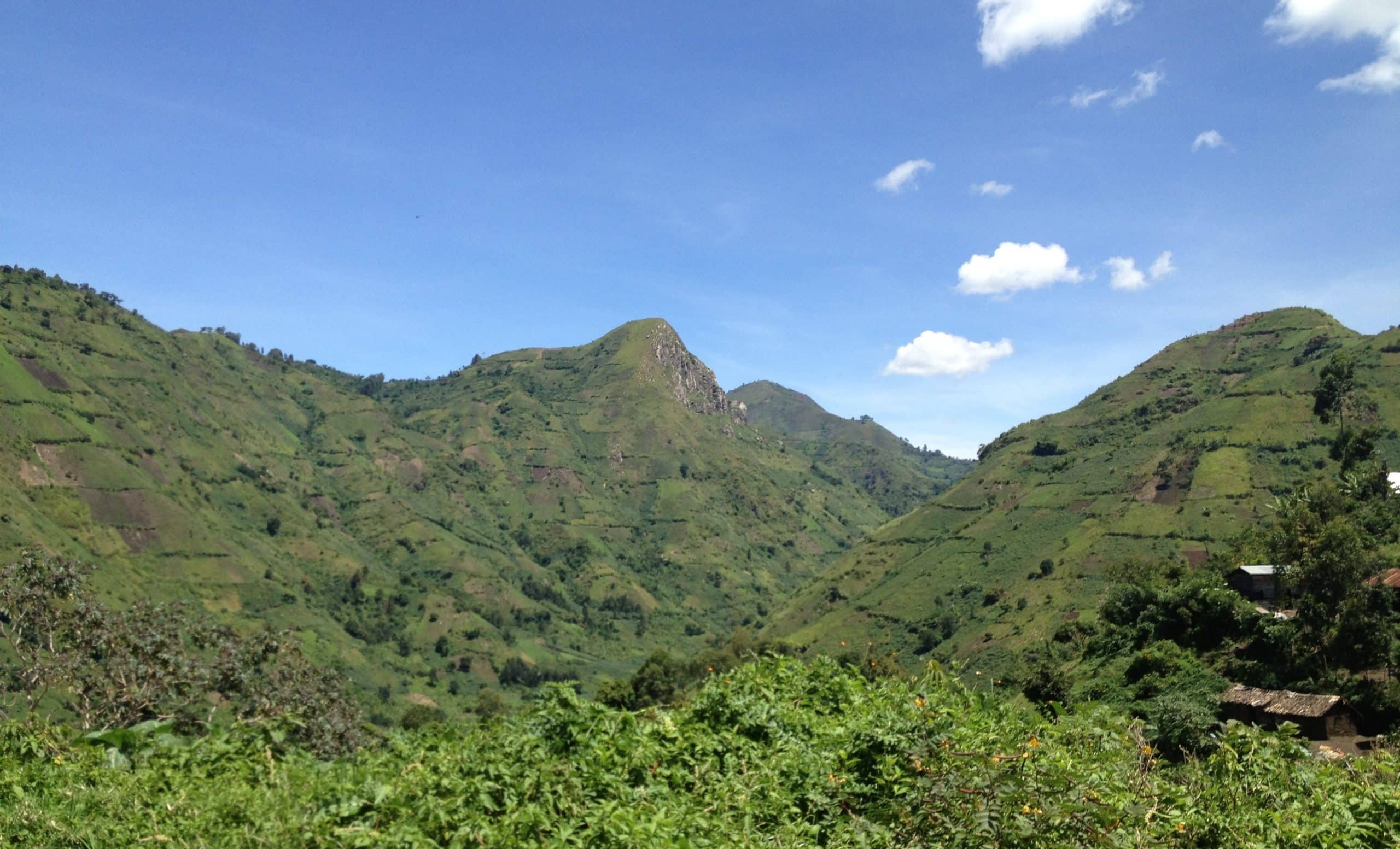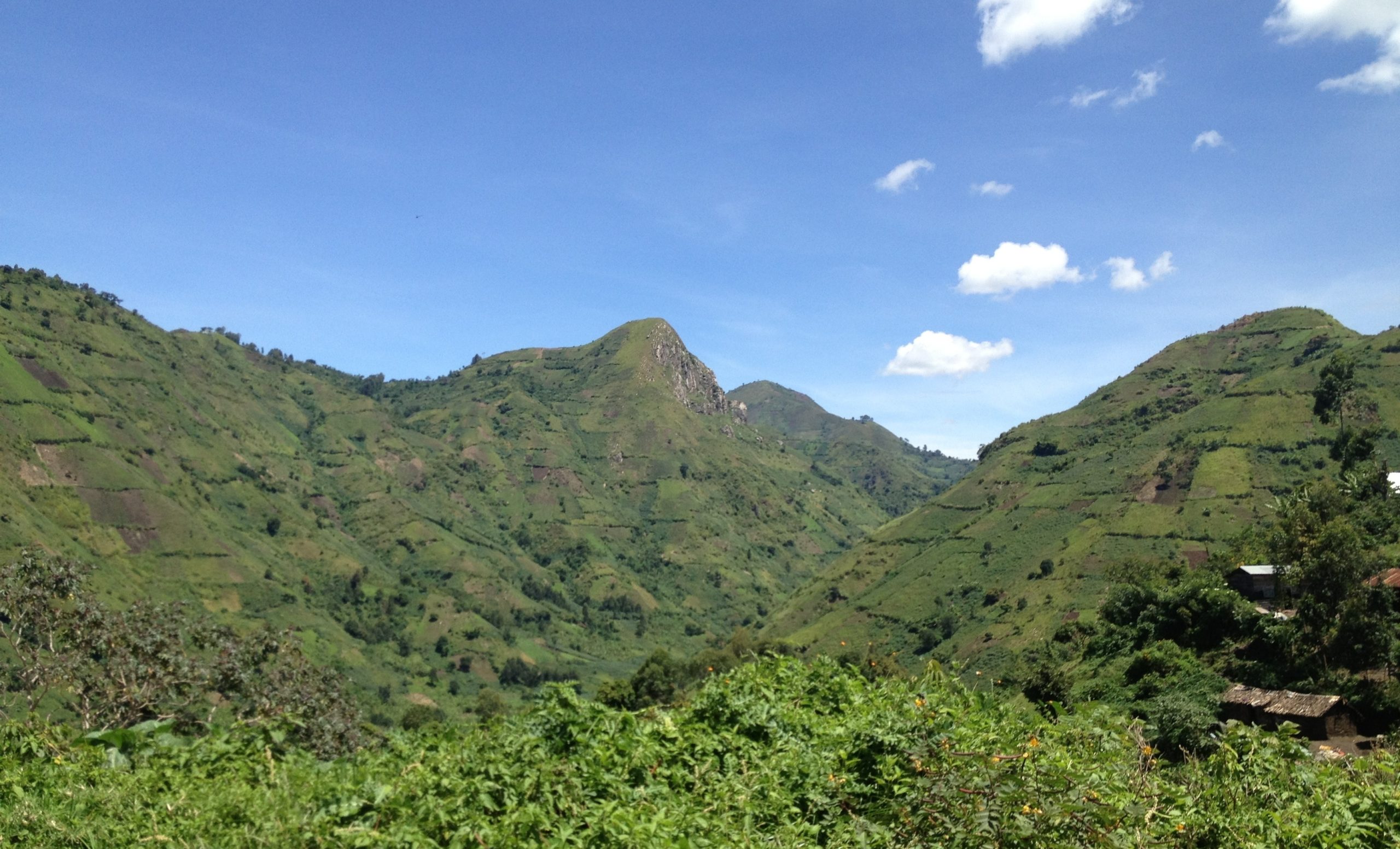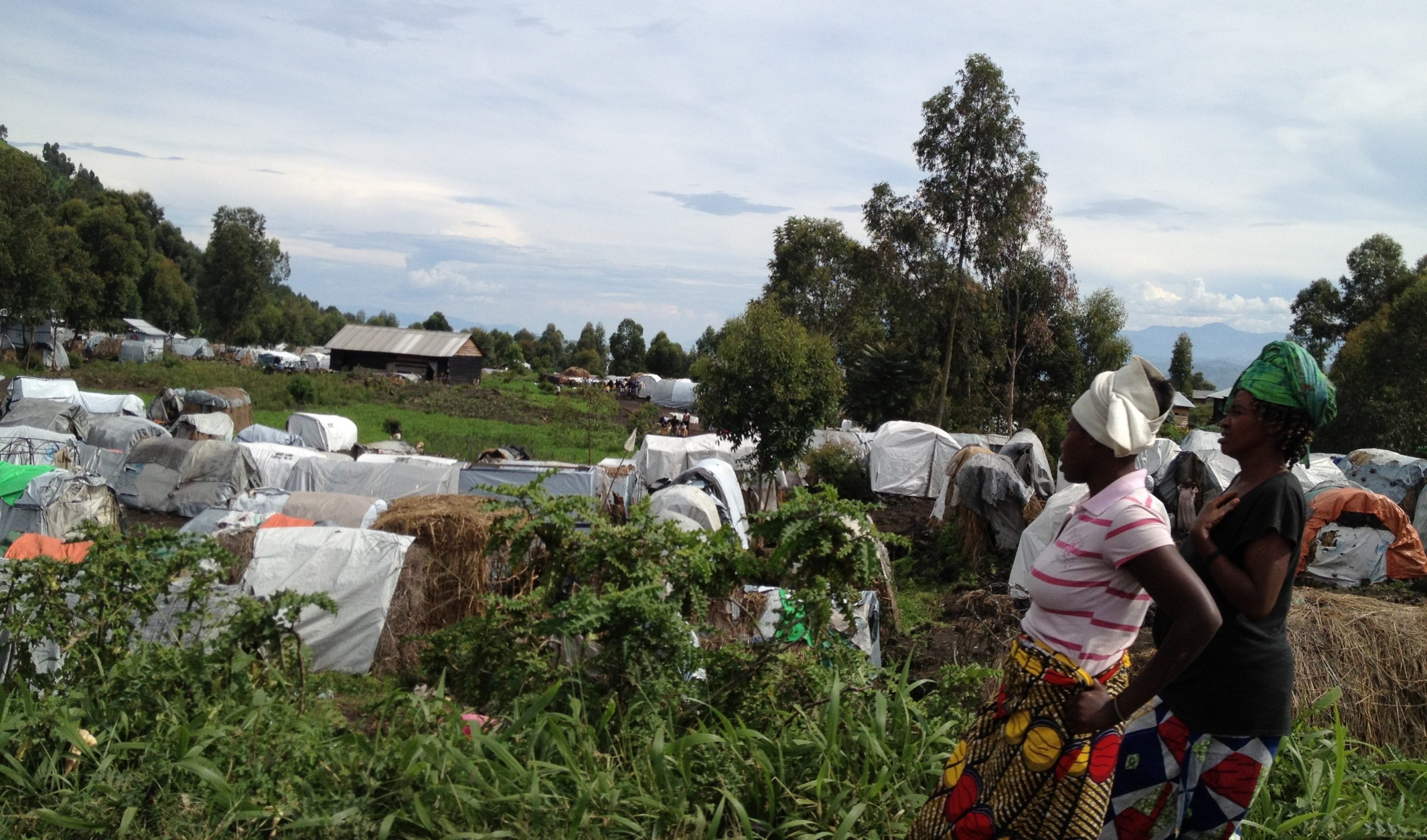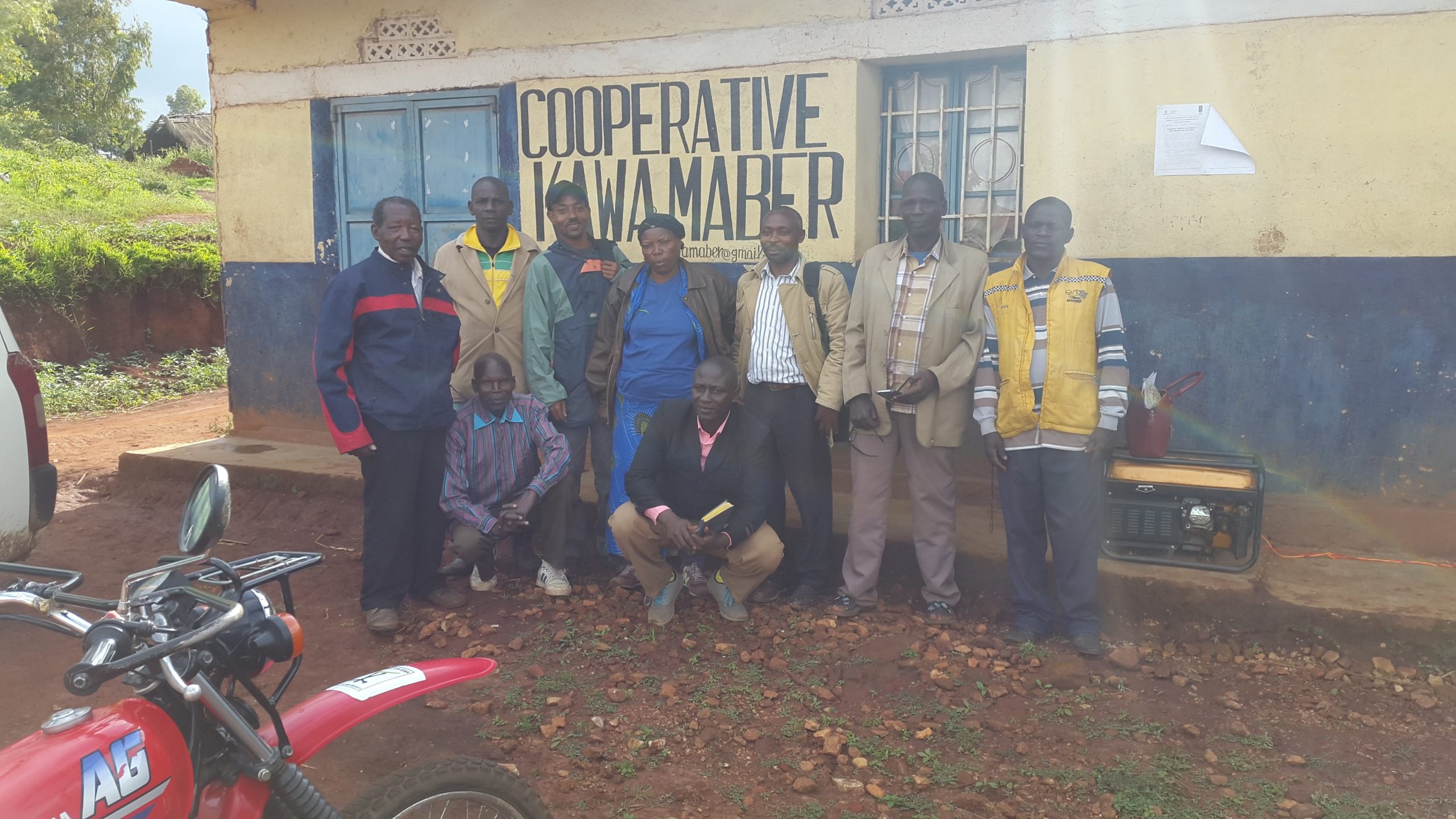
Hills rise into the sky in the coffeelands of the Democratic Republic of Congo (DRC).
Looking out the window as my taxi jostles along a bumpy dirt road that winds from Goli to Ndrele town through the hills of the northeastern Democratic Republic of Congo (DRC), I’m struck by the peaceful scenery that surrounds us. Grassy hills spotted with groves of trees and small gardens of banana, maize, and coffee trees rise gently into the horizon, stretching for miles on either side of the road. However, this region’s apparent tranquility belies a violent past — and scars that a few scrappy businesses are fighting against all odds to heal.
Following a brutal civil war that lasted for more than 20 years, costing the lives of five million people and displacing seven million more, the coffee-producing regions of the northeastern DRC were devastated. In the province of Ituri, in the northeastern corner of the country, this conflict was exacerbated by a history of ethnic strife: since the 1970s, the pastoralist Hema tribe and the farming Lendu tribe have clashed over land rights and usage, with violence most recently flaring up between these groups in 2003. With the government in turmoil and the economy at a near standstill, business and government support for coffee farmers was nowhere to be found.
A refugee camp in northeastern DRC. The region of the country where we work was hit particularly hard by the violence of the country’s civil war.
Yet amidst all of this bloodshed, a few tenacious entrepreneurs still found ways to form profitable coffee businesses. With the support of the Belgian nonprofit VECO-DRC, 102 coffee farmers in the Mahagi Territory of Ituri Province came together to form the cooperative Kawa Maber in 2013. Where formerly these farmers were forced to sell their coffee at cut-rate prices to middlemen in the region, as a cooperative with ties to European buyers they could now bargain for fairer prices by aggregating their coffee and selling it at scale.
Businesses like Kawa Maber are instrumental to rebuilding economies in war-torn regions such as the DRC. Unfortunately, businesses operating in these areas must contend with a seemingly endless array of challenges.
In the northeastern DRC, infrastructure, whether in the form of internet or functioning roads, ranges from poor to nonexistent. Extortion is a constant challenge, and the threat of ethnic and political violence is always around the corner. On top of that, this year alone the business had to deal with unusually heavy rains that wiped out roads, delaying every step of the production process from drying to quality control to export. The business doesn’t even have a formal address; compared to what lenders are accustomed to, it’s in the middle of nowhere.
At first glance, Kawa Maber is the ultimate underdog — a business with every reason to fail. But even in the face of seemingly insurmountable challenges, with the proper support, businesses like Kawa Maber have the potential to thrive.
Staff of Cooperative Kawa Maber.
Root Capital began to partner with Kawa Maber in November of 2015 with an $180,000 trade credit loan. While fairly small by Root Capital’s standards, such financing is essential for the success of cooperatives like Kawa Maber, who often find it nearly impossible to find capital from other sources.
Kawa Maber took that loan, and hit the ground running. After producing 1.5 containers of coffee — roughly 56,000 pounds — in 2015, the cooperative produced 3.6 containers in 2016 and projects an output of 6 containers in 2017.
From year to year, the prices that Kawa Maber has paid to its producer-members have risen steadily, surpassing those of its competitors. The quality of the cooperative’s coffee is not only high, but improving — their coffee this year received cupping scores of between 83% and 87%, earning it the Specialty Coffee Association of America’s second-highest rating. Perhaps most importantly, they have also become a political player on a national scale: this year, they served as part of a coalition that successfully lobbied the national government to slice the coffee export tax in half, ensuring that more profits from the sales of coffee could remain in the hands of the cooperative. And, last but certainly not least: they paid our loan back in full.
As remarkable as these successes are, Kawa Maber is far from putting its challenges entirely behind it. Financing is still difficult to come by, and the cooperative needs favorably structured and reasonably priced loans to allow them to pay their farmers on time, process their coffee, and sell it on a global scale. They’re not requesting a handout, or a free pass — they’re just asking for a chance to step into the ring. They want to learn the rules of the game, so that they can prove their worth — worth upon which the livelihoods of more than a hundred farming families depends.
With every successive loan, Kawa Maber is proving that with the proper support, businesses can overcome even the most extreme of obstacles. And as satisfying as it is to see that underdog first step into the ring, it’s that much more satisfying to see them win the fight.
Agriculture can rapidly create jobs and offer stable opportunities in rural post-conflict regions. Read more stories about the businesses that have risked everything to help farmers progress towards peace.


